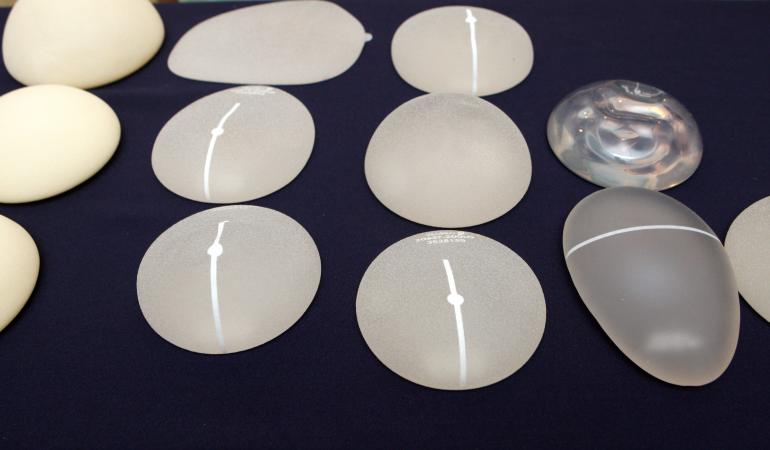
For Allergan Biocell breast implants an increased risk of BIA-ALCL (a very rare type of lymphoma) is plausible. The cases of BIA-ALCL in the Netherlands are predominantly found with Biocell and other breast implants with a rough surface. However, RIVM found insufficient evidence that other breast implants with a rough surface pose a similar type of risk as Biocell implants. This is due to the small number of BIA-ALCL cases and the limited use of these other implants.
Ban in France
As of April 5th 2019, as a precautionary measure, France has banned certain types of breast implants. The ban concerns macro-textured and polyurethane (PU) coated breast implants. These are breast implants with a rough surface. France made this decision because they see indications that breast implants with a rough surface present an increased risk of BIA-ALCL. The Dutch Health and Youth Care Inspectorate asked RIVM to assess the scientific substantiation of the French decision.
Breast implants with a rough surface
The majority of BIA-ALCL cases are found with Biocell breast implants. These are breast implants with a rough surface. For Biocell implants an increased risk of BIA-ALCL is plausible. The exact risk is unknown. This type of implant has not been available on the market in Europe since the end of 2018. The manufacturer has recalled all stocks.
Cases of BIA-ALCL have also been found with other rough surface breast implants, also in the Netherlands. These implants are used less frequently than Biocell. This is one reason why insufficient data are available to substantiate whether other types of implants present a similar risk as Biocell implants. Other reasons are the small number of BIA-ALCL cases and the use of different definitions for textures.
BIA-ALCL
ALCL is a very rare form of lymphoma. Women with breast implants are more likely to develop ALCL than women without breast implants. When ALCL is found in the vicinity of breast implants is called ‘breast implant-associated ALCL’ (BIA-ALCL). BIA-ALCL is a very rare disease, which makes it a difficult topic for research. It can take a long time for BIA-ALCL to develop and women have their implants replaced regularly throughout their lives. It is therefore not clear which implant has potentially played a role in BIA-ALCL development.